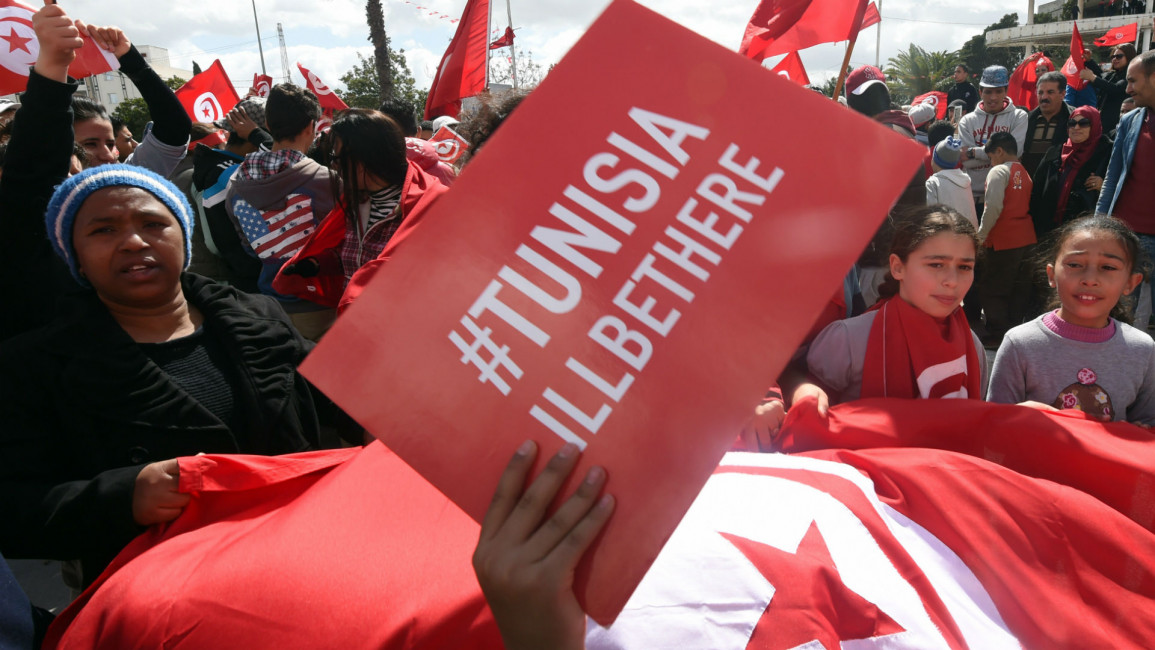
Tunisia and the politicisation of terror
Terrorist incidents are no longer a passing event, and almost every state in the world has witnessed some form of politically motivated violence against civilians.
No matter how strong the security agencies are, extremists of various nationalities are stepping up their attacks on civilians.
Underhand motives
| The large strides Tunisia has made toward establishing a pluralistic political system ... made it an easy target. |
This shows how difficult it is to prevent these incidents from happening, even in countries that boast sophisticated and advanced intelligence capabilities such as the United States, United Kingdom and France.
The difference between one country and another, however, lies in the way this phenomenon is dealt with. When such incidents happen, they have also provided an opportunity to underline national unity against the threat they face.
The recent heinous attack on foreign tourists in Tunisia, however, revealed a previously concealed desire by some to exploit the murders politically and use it as an opportunity to accuse political rivals of being responsible for what happened. This has been frequently witnessed in the Tunisian media.
Journalists and party activists have pointed the finger at the political Islam trend, particularly the Ennahdha movement and the former troika government and hold both responsible for the terrorist attacks that the country has witnessed recently.
Following calls for the exclusion of Islamist parties there was talk about an alleged role of linked charities in supporting violent extremist groups.
An MP, whose party is a partner in the government of Prime Minister Habib Essid, went as far as calling for the closure of mosques.
Members of parties known for opposition to the Islamists have accused certain countries of harbouring extremist cells. They have also called for curbing the activities of human rights organisations and restricting liberties, saying that these are "motives" for the extremist groups.
This political and partisan exploitation of a human tragedy, which affected all in Tunisia and was condemned by all parties reflects a shortsighted political vision.
Terrorism is not detached from historical contexts and is linked to domestic, regional and international situations.
Tunisia witnessed similar incidents during the rule of the now deposed president, Zine El Abidine Ben Ali. This included extremists murdering tourists and the bombing of the al-Ghriba synagogue in 2002. Bloody clashes between security forces and gunmen also broke out in 2005.
These incidents took place despite the regime's strict security measures and widespread monitoring of civilians, proving that extremism of this kind is not a new phenomenon.
Proliferation in violence
In fact, it reveals that these incidents might be linked to the policies of the Ben Ali regime, which could have produced and proliferated terrorism.
The regime used an excess of repressive security measures to rule, and its intelligence services even manufactured, so to speak, groups that were pro-violence.
In doing so, the regime was looking to justify and continue its repressive policies against all opponents using anti-terrorism as a pretext.
While it is impossible to deny that groups that use violence grew due to chaos in one of Tunisia's neighbouring countries, it is also obviously unfair to accuse the former troika government of being the main factor behind the growth and spread of terrorism.
There are many unpleasant sides to the discourse used by groups who use terrorism for political purposes.
Chief among those is the way they have turned the battle against isolated groups, responsible for terrorist attacks, into a conflict against rival political parties. This diverts attention away from the main conflict and creates minor battles that benefit terrorist groups.
The large strides Tunisia has made toward establishing a pluralistic political system based on co-existence and coalition agreements, made it an easy target for the many forces that do not want this model to succeed.
These are domestic and foreign forces, which do not conceal their annoyance at the democratic transition Tunisia has experienced. They seek to obstruct this path to foil other revolutions in the Arab World.
They supported the Egyptian coup, pushed the Syrian revolution toward the chaos of arms, and plunged Yemen into the furnace of a conflict that might lead to the disintegration of the country.
This convergence of interests between the counter-revolutionary forces and their foreign supporters on the one hand and terrorist groups on the other, raises more than one question about the hidden agendas surrounding terrorism.
They also present Tunisia's political parties and wise individuals on the Tunisian political scene with the great challenge of preserving the Tunisian revolution while steering the country away from polarisation. This is the biggest threat to national unity and civil peace.
This article is an edited translation from our Arabic edition.
Opinions expressed in this article remain those of the author and do not necessarily reflect those of al-Araby al-Jadeed, its editorial board or staff.




